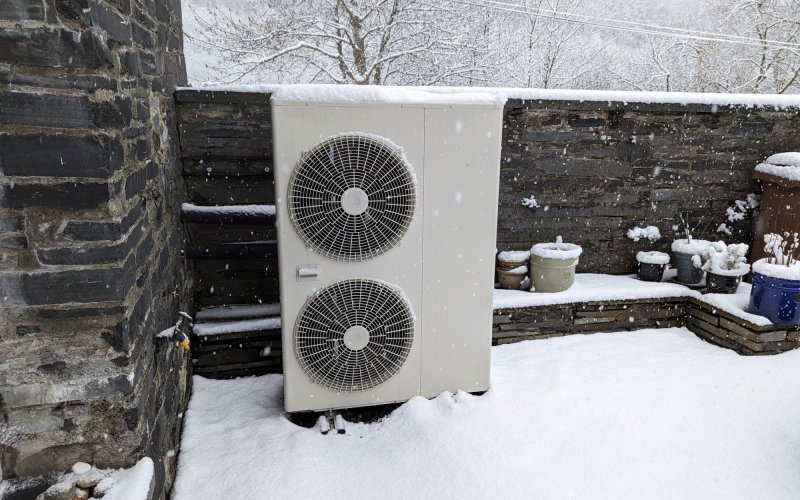A heat pump is said to be a miraculous machine that will heat my home from heat collected somewhere outside. But now I found out that it needs electricity to operate. So wouldn’t it be more advantageous to heat with electricity?
A heat pump is actually a bit like a refrigerator. While a fridge takes heat from its interior and heats the room in which it stands, a heat pump takes heat from the external heat reservoir to heat the interior of the house. A suitable reservoir can be the surrounding air, the ground on which the house stands or a water tank. A cooling medium circulates in the heat pump, which constantly takes heat from the outside and transfers it to the heated rooms. Typical media are fluorocarbons, propane and the like. An important property of the refrigerant is that it can change from a gas phase to the liquid phase and back again at the operating temperatures of the pump. The phase transition is precisely the “magic” that enables the pump to work. The circulation of the refrigerant and its phase transitions are ensured by a compressor and this is exactly where the pump needs electricity. The compressor first compresses the gaseous refrigerant, which heats it up. The hot gas then transfers its energy in the condenser to the heating medium inside the house. Mostly to water in radiators. As it transfers heat, the gas cools and condenses into a liquid. The liquid refrigerant is led out through the condensing nozzle to the evaporator. Behind the condensing nozzle there is a sharp drop in pressure, the refrigerant evaporates and at the same time cools down sharply. Now follows the phase when the cooling gas takes energy from the surroundings. It heats up, thereby cooling the surroundings at the same time. It can take energy from the surrounding air, from the rock under the house or from a water tank. When the gas is heated, it travels back to the compressor where it is compressed and the whole cycle repeats.
A heat pump works better the warmer the heat reservoir is, i.e. it is more efficient in summer than in winter, when heating is most needed. However, the thermal reservoir can be prepared for the winter. For instance, in the summer we will use an air conditioner to remove heat from the room and store it in a storage tank. For example, to heat a rock massif on which the house is built. However, most pumps are designed to be able to work and heat even in winter. The exact value of their effectiveness depends on many factors. Under ideal conditions, it can supply up to three times more energy than if we were to heat it directly with electricity.
Want to ask something?
Send us an e-mail with the subject “Physics mysteries” to the address:
We can't wait to tackle your interesting questions!





